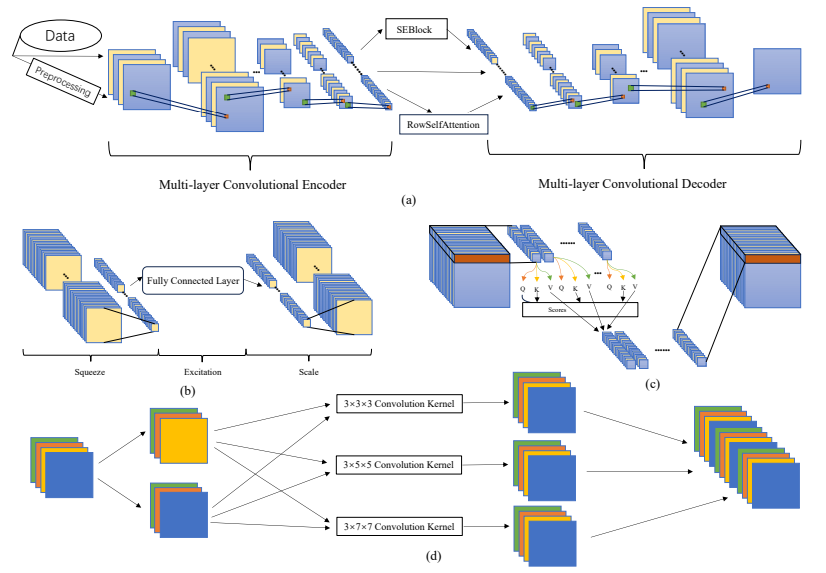You can access my all of papers at 🔗Google Scholar.
2025

Lightweight Deep Learning Framework for Accurate Particle Flow Energy Reconstruction
Yu Wang, Yangguang Zhang, Shengxiang Lin, Xingyi Zhang, Han Zhang
arXiv e-prints
Under extreme operating conditions, characterized by high particle multiplicity and heavily overlapping shower energy deposits, classical particle flow algorithms encounter pronounced limitations in resolution, efficiency, and accuracy. To address this challenge, this paper proposes and systematically evaluates a deep learning reconstruction framework: For multichannel sparse features, we design a hybrid loss function combining weighted mean squared error with structural similarity index, effectively balancing pixel-level accuracy and structural fidelity. By integrating 3D convolutions, Squeeze-and-Excitation channel attention, and Offset self-attention modules into baseline convolutional neural networks, we enhance the model's capability to capture cross-modal spatiotemporal correlations and energy-displacement nonlinearities. Validated on custom-constructed simulation data and Pythia jet datasets, the framework's 90K-parameter lightweight variant approaches the performance of 5M-parameter baselines, while the 25M-parameter 3D model achieves state-of-the-art results in both interpolation and extrapolation tasks. Comprehensive experiments quantitatively evaluate component contributions and provide performance-parameter trade-off guidelines. All core code and data processing scripts are open-sourced on a GitHub repository to facilitate community reproducibility and extension.
